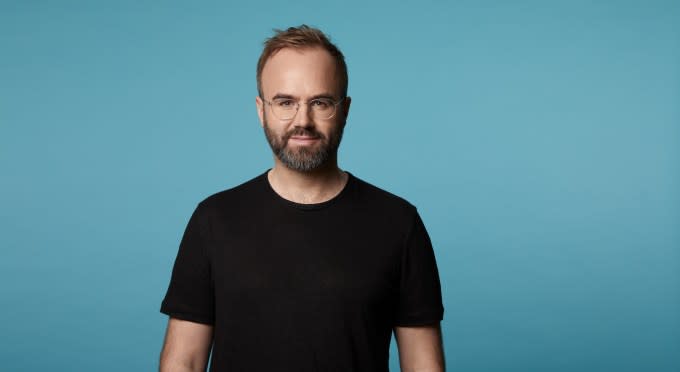Immigrant banking platform Majority secures $20M following 3x revenue growth
- Oops!Something went wrong.Please try again later.
It can be challenging to pick up and move to a new country, made even more challenging if you are not used to the style of banking in that particular country.
The increase of immigrants to the United States — some 50 million total foreign-born people live in the U.S. now, according to immigration think tank Center for Immigration Studies — presents an opportunity for startups to tailor financial services to this population. Companies like Comun, Maza, Alza and Welcome Technologies, for example, help Latino immigrants open bank accounts.
Magnus Larsson, himself an immigrant from Sweden, ran into similar problems and created Miami-based Majority in 2019 to address them. For a $5.99 per month membership fee, migrants can open a bank account and get a debit card, community discounts, low-cost international money transfers and discounted international calling. There is also a peer-to-peer pay feature.
Accounts don’t require a Social Security number or U.S. documentation, just an international government-issued ID and proof of U.S. residence. They also don’t have overdraft fees or minimum balance requirements. In addition, users have access to Majority’s “Advisor Program,” a network of trained support staff nationwide, who are immigrants themselves.
“For many customers, we are the primary relationship they have when it comes to their financial services, and services to connect back to their own country,” Larsson told TechCrunch. “Most migrants are hit by a lot of predatory fees. When it comes to financial services, remittances and moving money cross-border, you pay a fixed fee, but we are taking away the other fees."

Majority’s approach has caught on: Over the past year, the company grew its revenue three times while the number of users doubled. In April, Majority reached $40 million in annual recurring revenue and $200 million monthly in new deposits, Larsson said. Overall, transaction volume grew five times, while remittances grew four times in 2023. Remittances are how someone in the U.S. sends money to someone across boarders, like to family members back home.
TechCrunch has followed Majority’s growth journey since it closed a $19 million seed round in 2021. The company has since gone on to raise a $27 million Series A and several tranches of Series B funding, most recently a $9.75 million round in 2023, which included backing from existing investors Valar Ventures and Heartcore Capital.
All of that growth led Larsson to consider raising additional funding to help pay for more growth. Of the $20 million in capital raised, $12.5 million is equity, another Series B tranche. The round was led by fintech founders including Klarna co-founder Victor Jacobsson and Swedish serial entrepreneur Hjalmar Winbladh. Valar Ventures, Heartcore Capital and another existing investor Avid Ventures are back to participate, and Zettle co-founders Magnus Nilsson and Jacob de Geer also participated.
The rest of the money was $7.5 million in debt financing from an unnamed bank. In total, Majority has raised $90 million in equity funding to date. Larsson also declined to give the company’s valuation, but did say it was a flat round.
In addition, the company recently hired Abhi Pabba to serve as chief risk officer. Pabba previously served as Apple’s manager of credit risk for the Apple Card. He will support Majority’s upcoming product expansion efforts.
With the new funding, Larsson intends to continue developing products, including helping users establish a credit score and gain access to credit products. The company is also building products for redundancies to better manage risk.
The recent funding is also the final step toward profitability, Larsson said.
“That’s always been the aim, and could come as soon as next year,” he said. “We are in that stage where we know our customers well, we know that they love our product and we know how to scale this market very well. What we're doing is making people thrive and succeed better and faster. It's something that is needed, and going forward, we are evaluating how we can build this for 300 million people.”

